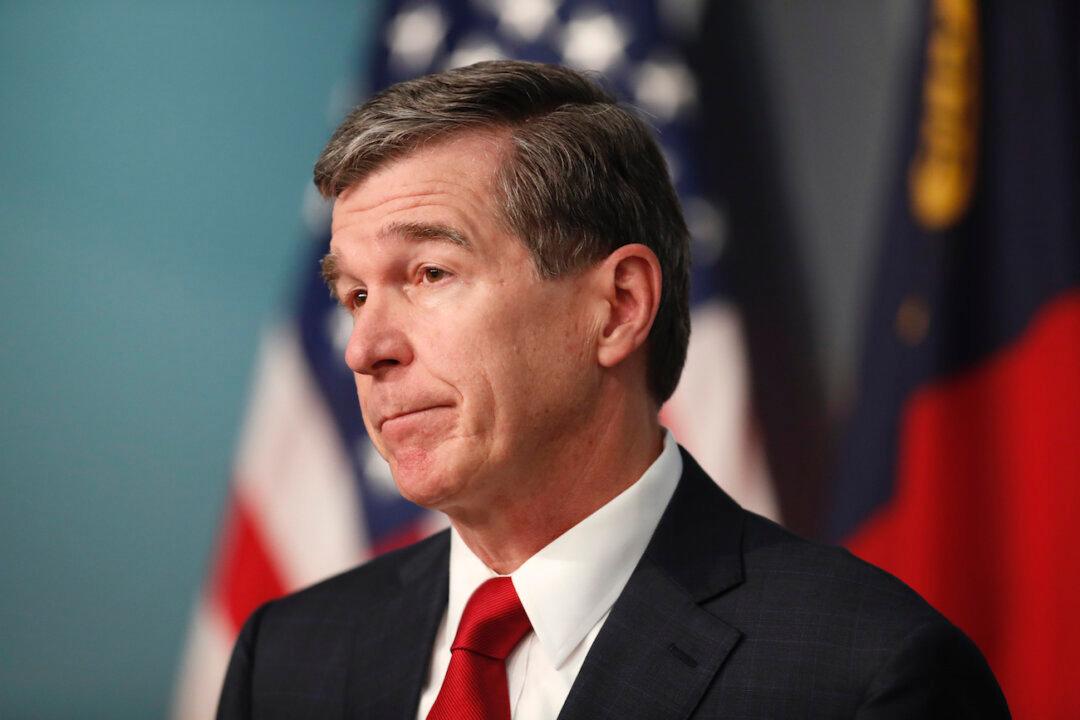Democratic North Carolina Gov. Roy Cooper vetoed a bill that would have prevented males from competing in interscholastic sporting events designated for females, even after the legislation earned bipartisan support in the state legislature.
On July 5, Mr. Cooper formally vetoed HB 574, titled the “Fairness in Women’s Sports Act. The bill stated that “athletic teams designated for females, women, or girls shall not be open to students of the male sex” at the middle school, high school, or college levels.





